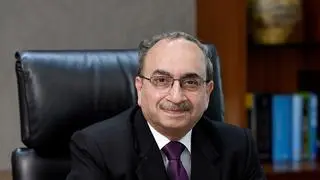Mobile money transactions will require four years to become widely accepted by consumers globally, according to a KPMG report.
KPMG conducted a survey of nearly 1,000 executives from the financial services, technology, telecommunications and retail sectors and found that 83 per cent expected mobile payments to be mainstream within four years.
However, KPMG itself is of the opinion that mobile money transactions will grow at a faster pace than what the respondents anticipate.
“We believe that exploding smartphone growth and myriad opportunities will grow mobile payments at a much faster rate than our respondents anticipate,” KPMG Global Chair of the Technology, Communication and Entertainment, Mr Gary Matuszak, said.
“A wide variety of payments is ready for adoption, as several key players already provide or are rolling out mobile payments, and interest among consumers in utilising mobile payments is growing in line with the industry’s readiness to deploy them,” he added.
The mobile money transactions are estimated to reach $350 billion by 2015, and the number of mobile users in the country is expected to touch 900 million from the current 500 million. Industry experts believe that there would be 150 million smartphone users by 2015.
Nearly 72 per cent of the executives said mobile payments will be reasonably important in the future, while 58 per cent said they have a mobile payments strategy in place.
“There is a consensus on the significant value of this opportunity among executives across geographies and industries, but the type and size of opportunity varies between the developed and developing countries, depending on the depth and reach of the financial infrastructure in place,” Mr Matuszak said.
“We believe that firms willing to engage in cross-industry partnerships, are more likely to succeed and dominate the market due to the complex set of business relationships, required to deliver mobile payments to a mass market,” he added.
The survey noted that 81 per cent found that convenience or accessibility was the most important factor in mobile payment, while 73 per cent said the technology should be simple and easy to use.
About 57 per cent of respondents said the transactions should be secure and 43 per cent said it should be low-cost.
“Consumer convenience and perception of security will be the key for adoption of mobile payments in India,” KPMG Advisory Services Director, Mr Kunal Pande, said.
Banks, credit card companies, telecom operators and online service providers are expected to benefit from the mobile payment transaction.
Telecom operators favour the M-Wallet services and nearly one-third of the telecom providers said they were likely to gain traction in their region.
“Our view is that M-Wallet is one of the most exciting and promising payment opportunities. M-Wallet provides the momentum to move beyond payments to participate in the entire chain of mobile commerce, from consideration and brand awareness to purchase after-sales loyalty and care,” KPMG Europe Technology Sector Head, Mr Tudor Aw, said.
The National Payments Corporation of India provides mobile payment option to customers in a tie-up with more than 20 banks. Telecom operators like Airtel, Vodafone, Idea and handset maker Nokia have partnership with banks for M-wallet services.







Comments
Comments have to be in English, and in full sentences. They cannot be abusive or personal. Please abide by our community guidelines for posting your comments.
We have migrated to a new commenting platform. If you are already a registered user of TheHindu Businessline and logged in, you may continue to engage with our articles. If you do not have an account please register and login to post comments. Users can access their older comments by logging into their accounts on Vuukle.